100 years of the Guelph Pipe Band: history made and still in the making

With the likes of Woolmet, Torphichen, Wasach, and Cullybackey, “Guelph” is one of the more delightfully unusual names in the pipe band world.
For those who don’t know, Guelph (pronounced gwelf) is a city of about 150,000 in southwestern Ontario with pipe band dream comfort memory to spare.
It’s also home to a historically significant pipe band that, in 2022, is celebrating its centenary.
Those older than 45 will remember the Guelph Pipe Band as a remarkable Grade 1 group led chiefly by Pipe-Major Ed Neigh and Lead-Drummer Larry Willis, with a creative giant of a dancing bass drummer, Jimmy Stewart.
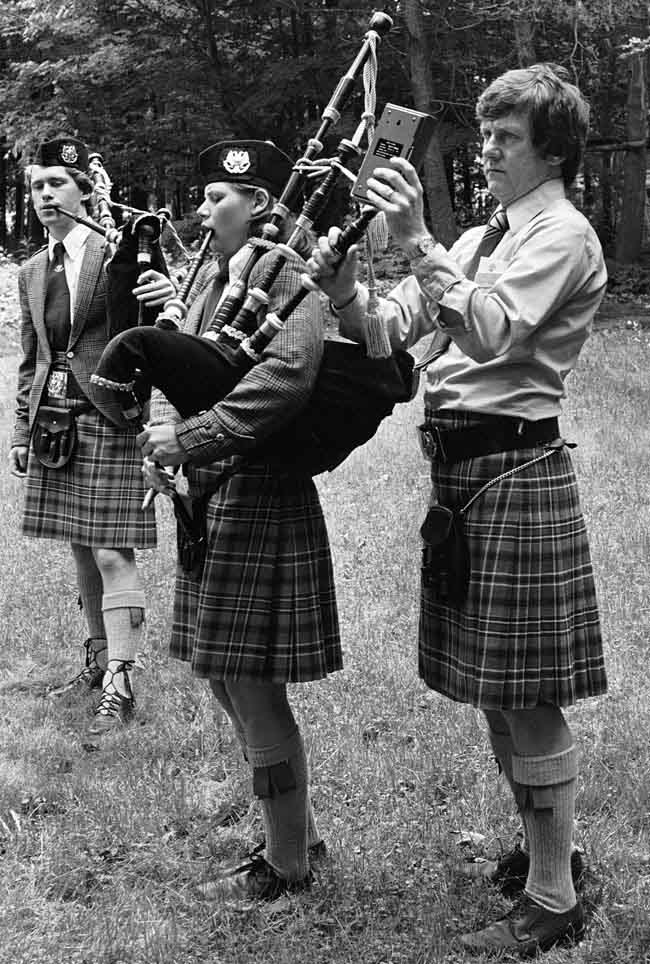
The band was the first known to use an electronic tuner. Neigh and Willis’s teaching methods allowed them to recognize and cultivate talent at a record pace. They made medleys and played repertoire that pushed conventional norms. And, perhaps most importantly, Guelph was one of the first at the top grade to welcome women into its pipe- and drum-sections, with players like Marilyn Martin-Willis, Melanie McGillivray, Ellen Mole, Heather Roberts and Teresa Weston.
This was a band in the 1970s and early ’80s that was different. It made a considerable mark on pipe band history and won Grade 1 North American Championships in 1976 with Neigh and in 1981 under interim Pipe-Major Jim McGillivray with a set of Sinclair chanters borrowed from competition rivals Clan MacFarlane.
Since 1922, the Guelph Pipe Band has consistently carried the flag for piping and drumming excellence in southwestern Ontario. This year, the now Grade 3 group celebrates 100 years under Pipe-Major Tyler Bridge and Lead-Drummer Drummer Thomas Litherland and holds a solid link to the legacy of the late Ed Neigh through his long-time pupil and current pipe-sergeant, Dylan Whittemore.
The early days of the Guelph Pipe Band
The City of Guelph Pipe Band was founded in 1922 when the local Ladies Auxiliary raised funds to start a pipe band. The first pipe-major was James Hill, who had emigrated from Perth, Scotland, and settled in the farming community. The name Guelph comes from the Italian Guelfo and the Bavarian-Germanic Welf, references to the House of Welf, honouring King George IV, the reigning British monarch at the time of the city’s founding in 1827.
Because of the original connection with Perth, the band wears the Perth town crest as a cap badge.
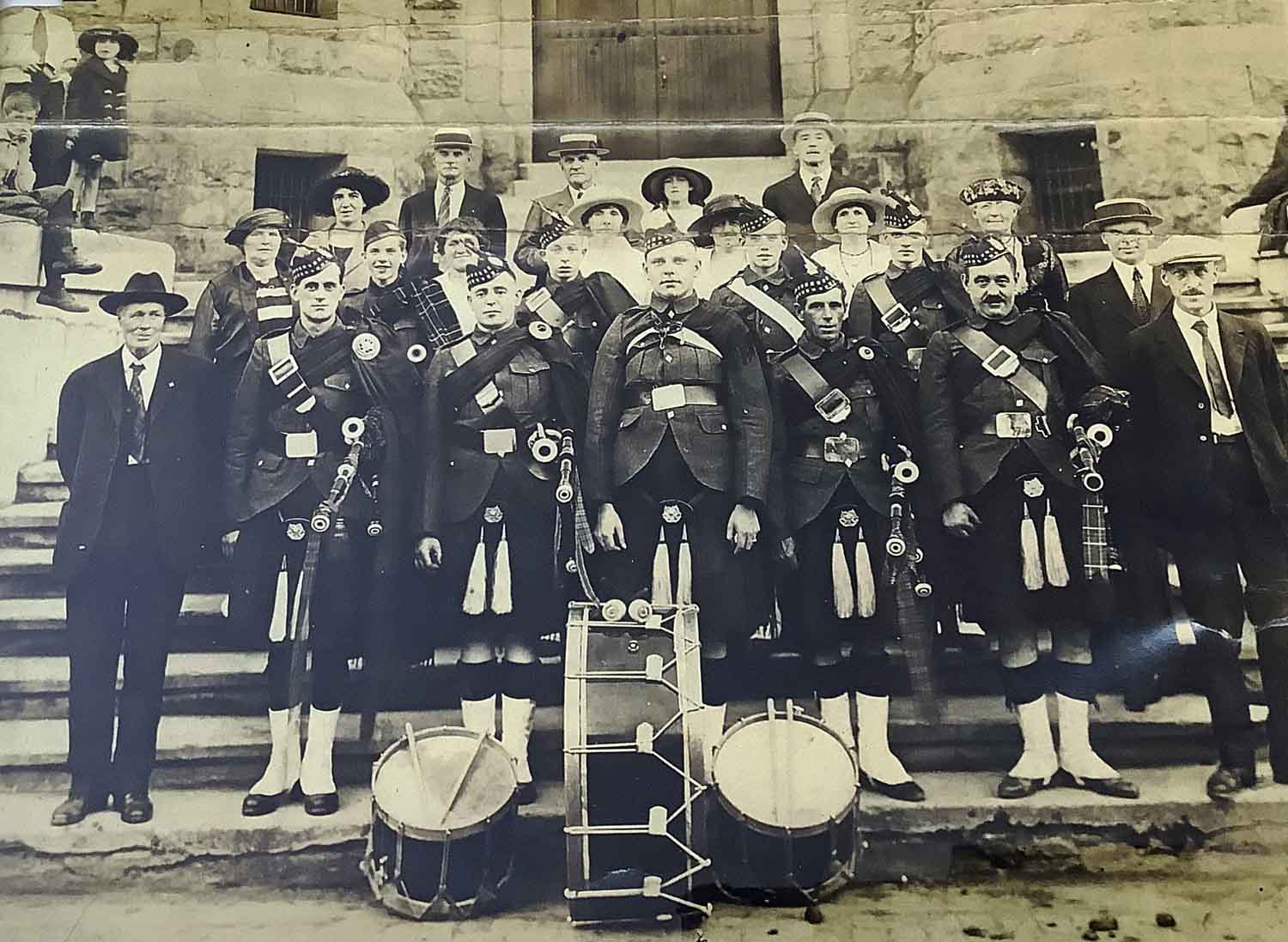
Another notable City Guelph Pipe Band pipe-major is Arthur Corstorphine. He served with the Royal Highland Fusiliers of Canada in World War II and was Senior Pipe-Major of the Canadian contingent during the Berlin Allied Victory Parade in 1945.
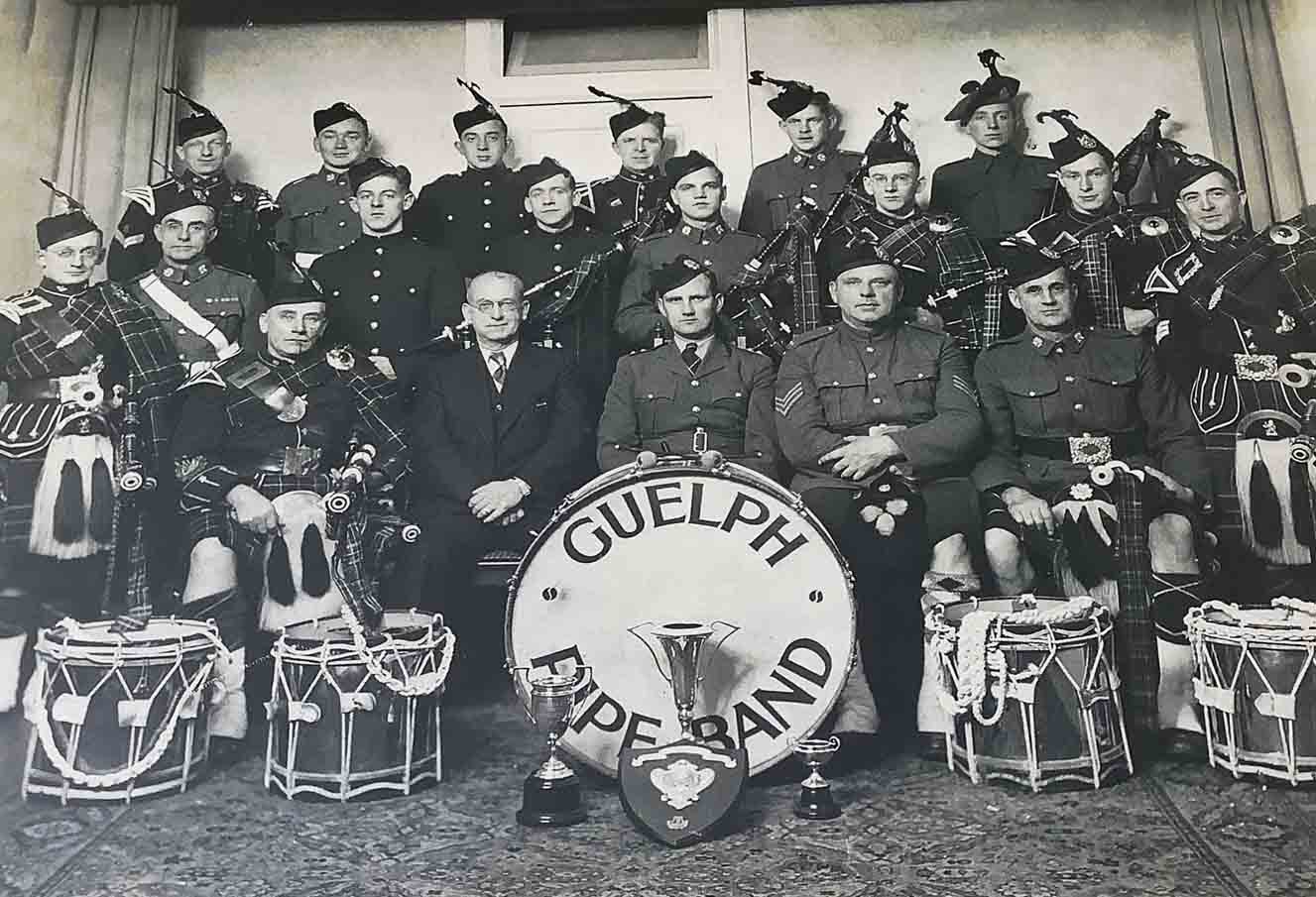
The group continued as a community pipe band for the next two decades until Ed Neigh became pipe-major in 1968. Neigh had no Scottish background yet was a determined and passionate natural leader with an unlikely last name. The son of German immigrants, he was nonetheless enthralled with Highland piping and piobaireachd and obsessively studied the instrument, its music and the competition culture throughout his life.
With Larry Willis, they assembled and taught an equally driven group that in the 1970s became pipe band pioneers as one of the first Canadian bands to travel to Scotland regularly to compete at the World Championships. Willis’s drum section was also one of the first to beat those of Scottish Grade 1 bands when they met head-on at the RSPBA-sanctioned Inter-Continental Championships at the Scottish World Festival in Toronto in the 1970s.
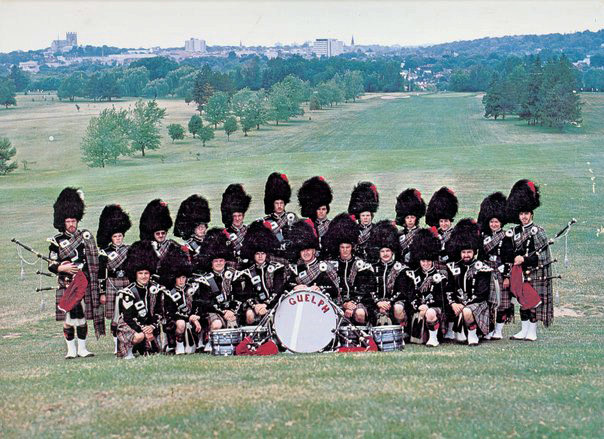
While the band celebrates its 100th anniversary, there were lean years in the late 1980s and early 1990s when it elected not to compete. However, the group continued with pipe-majors Bruce Anderson and Bruce MacDonald. They resurrected its teaching program, eventually seeing the band return to competition in the early 2000s in the lower grades. It won the Grade 4 Pipers & Pipe Band Society of Ontario’s Grade 4 Champion Supreme title in 2003.
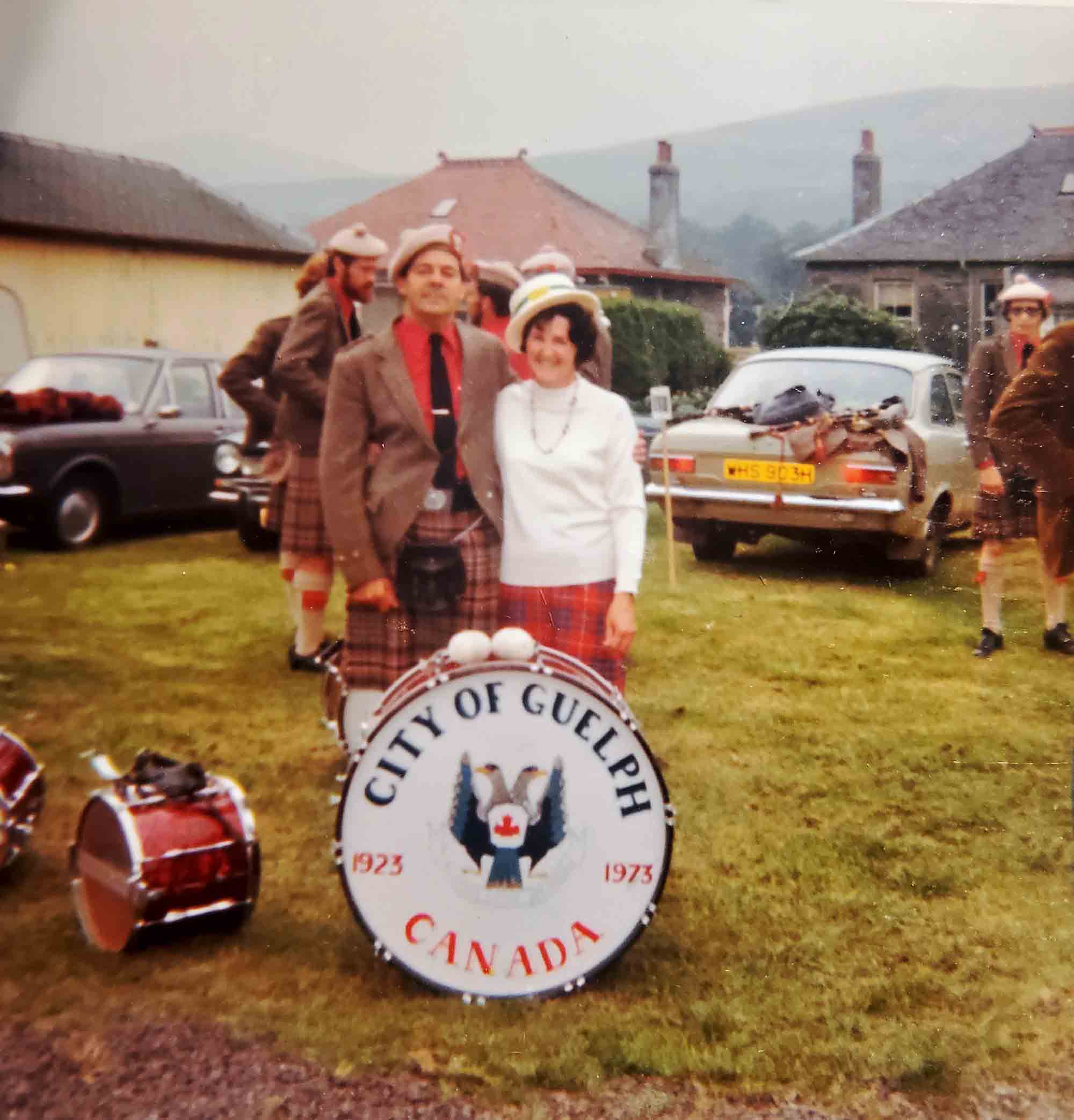
There would be brief competition hiatus and a sharpened focus on community events and teaching. With Anderson’s support, current pipe-major Tyler Bridge assumed the role as a teenager in 2013. The band returned to the Grade 4 competition field.
As with every band, the worst of the pandemic years to date put the kybosh on plans and momentum. Still, the Guelph Pipe Band remained active with zoom practices and innovative use of online recording programs to keep members engaged and active, again with a focus on developing individual skills and learning new repertoire.
As a result, Guelph remained strong through 2020 and 2021. The organization now features nearly 70 members across its Grade 3 and Grade 4 competition bands, continuing from its 2019 Grade 3 win at the North American Championships.
Identifying an opportunity to bring together and nurture those from “non-competing” bands in the southwestern Ontario community, they assembled and launched the Grade 5 Spirit of Ontario Pipes & Drums. The band is not only another feeder group but, more importantly, gives younger developing players a chance to hone their skills on the competition field while still being able to support their hometown bands in community events.
100th-anniversary celebrations and the future
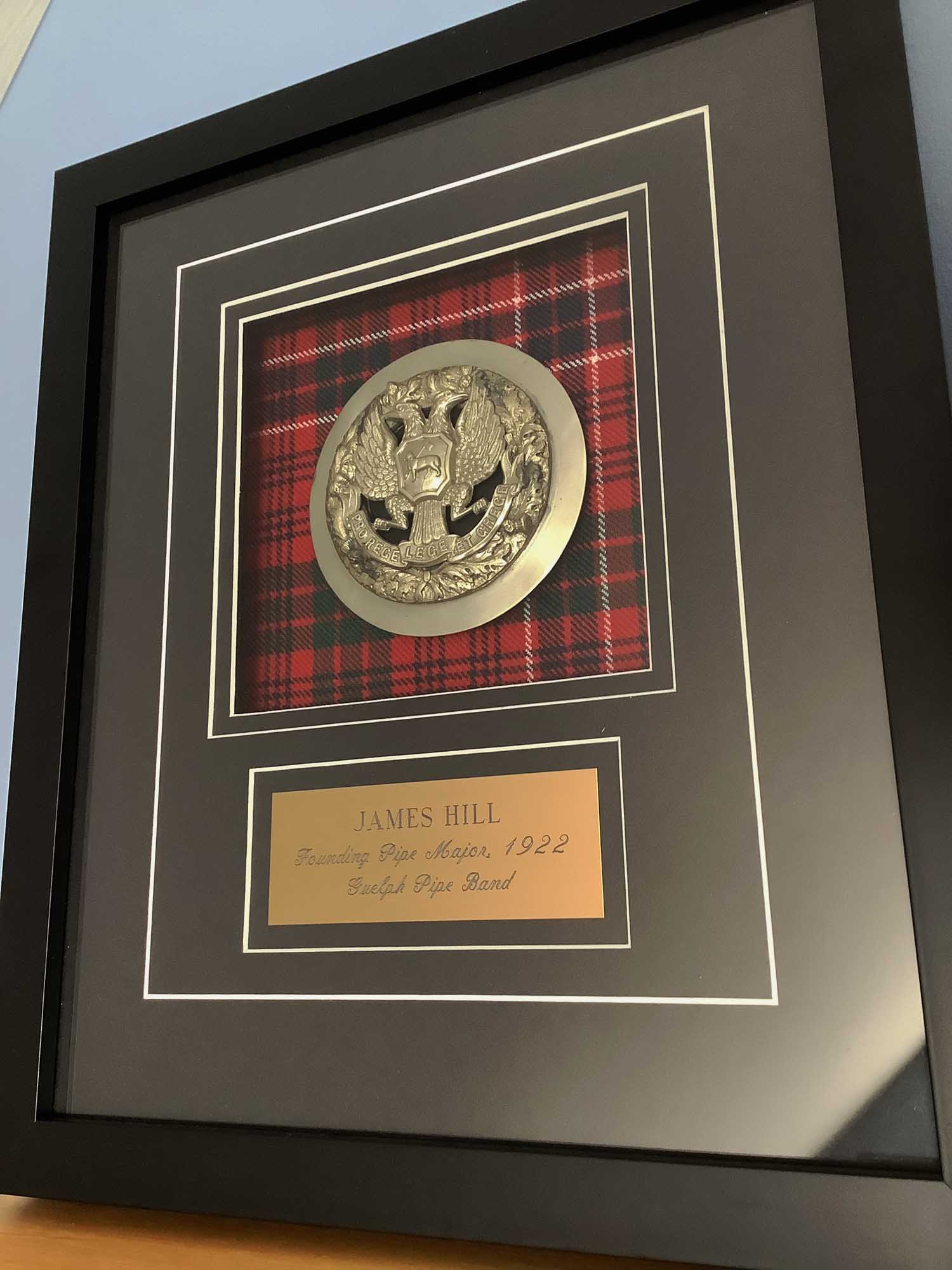
The Guelph Pipe Band organization will celebrate its 100th anniversary with a concert on July 23rd at the River Run Center in Guelph. The show will include performances from all three competing bands and accompaniment and performances from the Steel City Rovers Celtic folk group and pianist Mika McCairly. (Tickets available here.)
The Guelph Museum has planned an exhibit about the band that will open on August 9th and run until January 2023. Pictures and artifacts from the band’s 100-year history have been compiled and loaned to the museum, including the plaid brooch worn by founding Pipe-Major James Hill.
The band recently held an anonymous composing contest within its membership resulting in a 12/8 march by Tyler Bridge, “The Guelph Pipe Band Centenary March.”
With an eye to the next 100 years, the Guelph Pipe Band organization is continuing its focus on teaching, with the organization’s leaders working with new and existing students. Recognizing the seeming perennial shortage of pipe band percussionists in Ontario, the band is planning to launch a drumming-focused teaching program in the fall of 2022.
The group also maintains a partnership with the local Guelph Air Cadet Pipe Band, bringing several players from scratch to Grade 1 solo competition status since 2014. The organization also keeps a solid connection to the local community by participating in Remembrance Day, Santa Claus Parades, Charity Fundraisers like the CIBC Run for the Cure, and many other community events throughout the year.
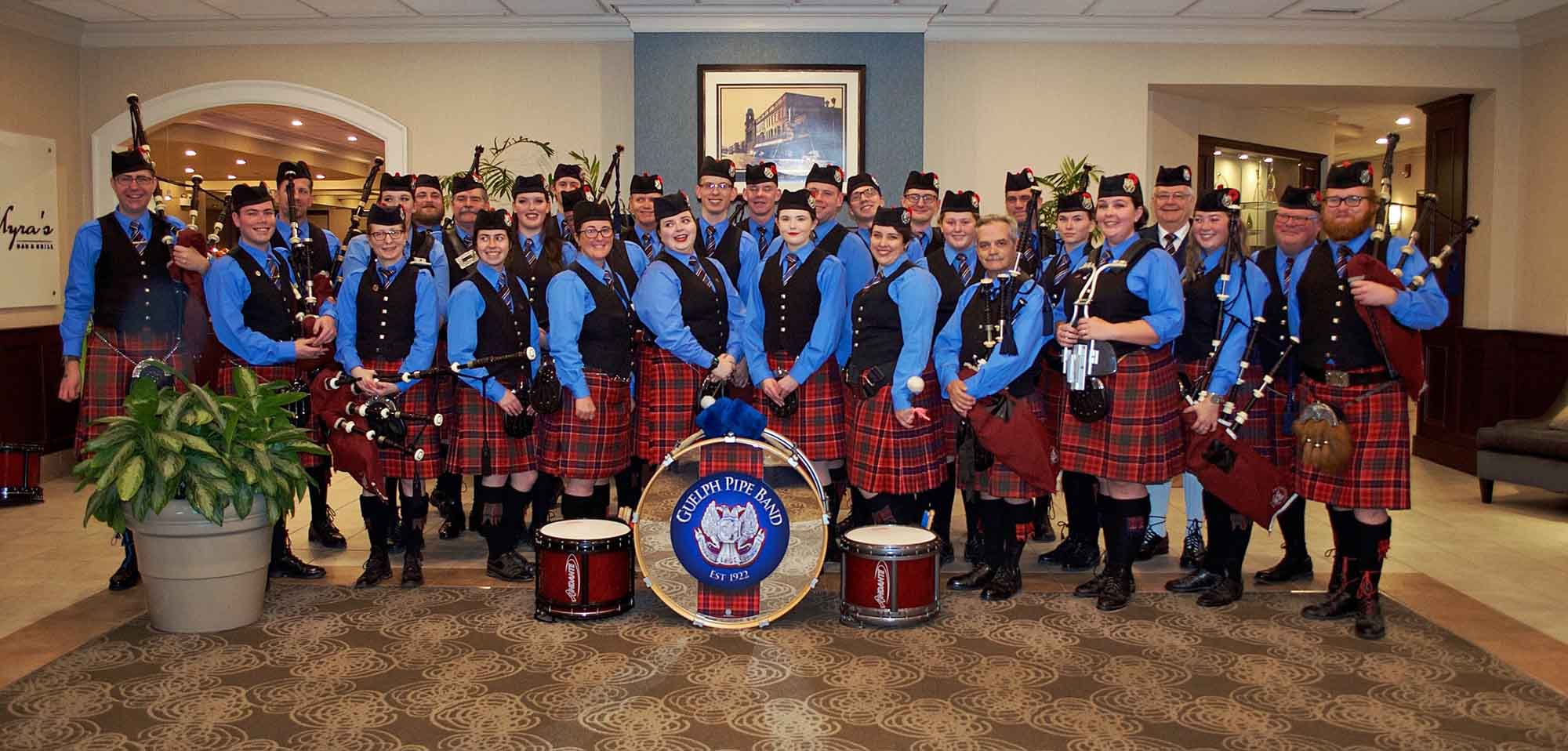
And for the first time since the 1980s, the Guelph Pipe Band plans to compete at the World Championships in the next few years.
For a century, the Guelph Pipe Band has stuck to a tradition of teaching, community and camaraderie first, and competition, gradings and prizes second. The combination of priorities has created a 100-year continuity infrequently seen in a pipe band world in which groups often rise, decline, and disintegrate in a season.
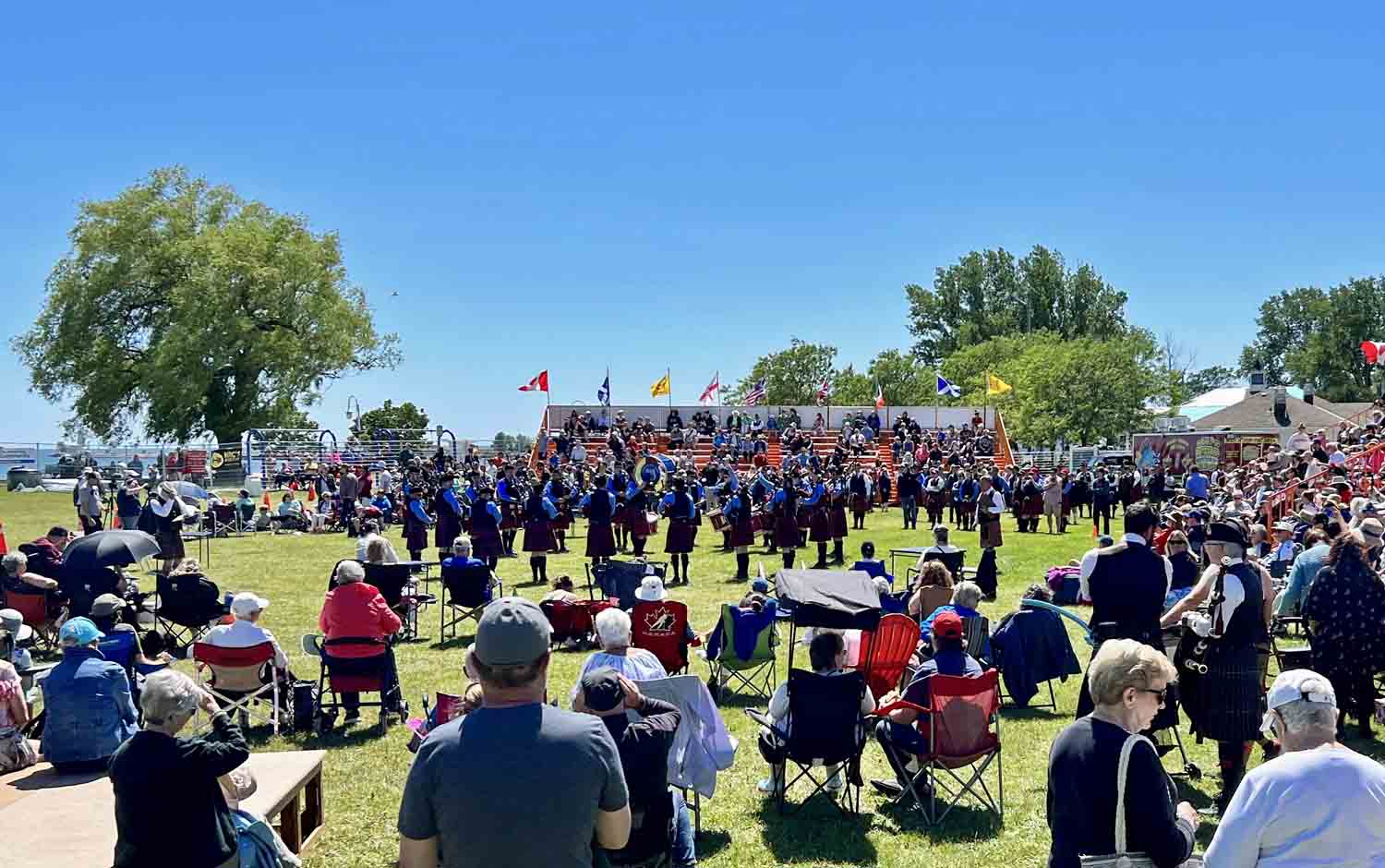
Significant for its contributions and innovations in the pipe band world and its local community, the Guelph Pipe Band looks to the future with a reason-to-be that never has and is unlikely ever to change.
Tyler Bridge has kindly provided us with the manuscript, harmonies, and a recording of his 12/8, “The Guelph Pipe Band Centenary March”:
Our thanks to Tyler Bridge for his assistance with this article.
What’s your band up to? We’re always interested in your news and stories, so feel free to drop us a line any time. We love to hear from our readers around the world!


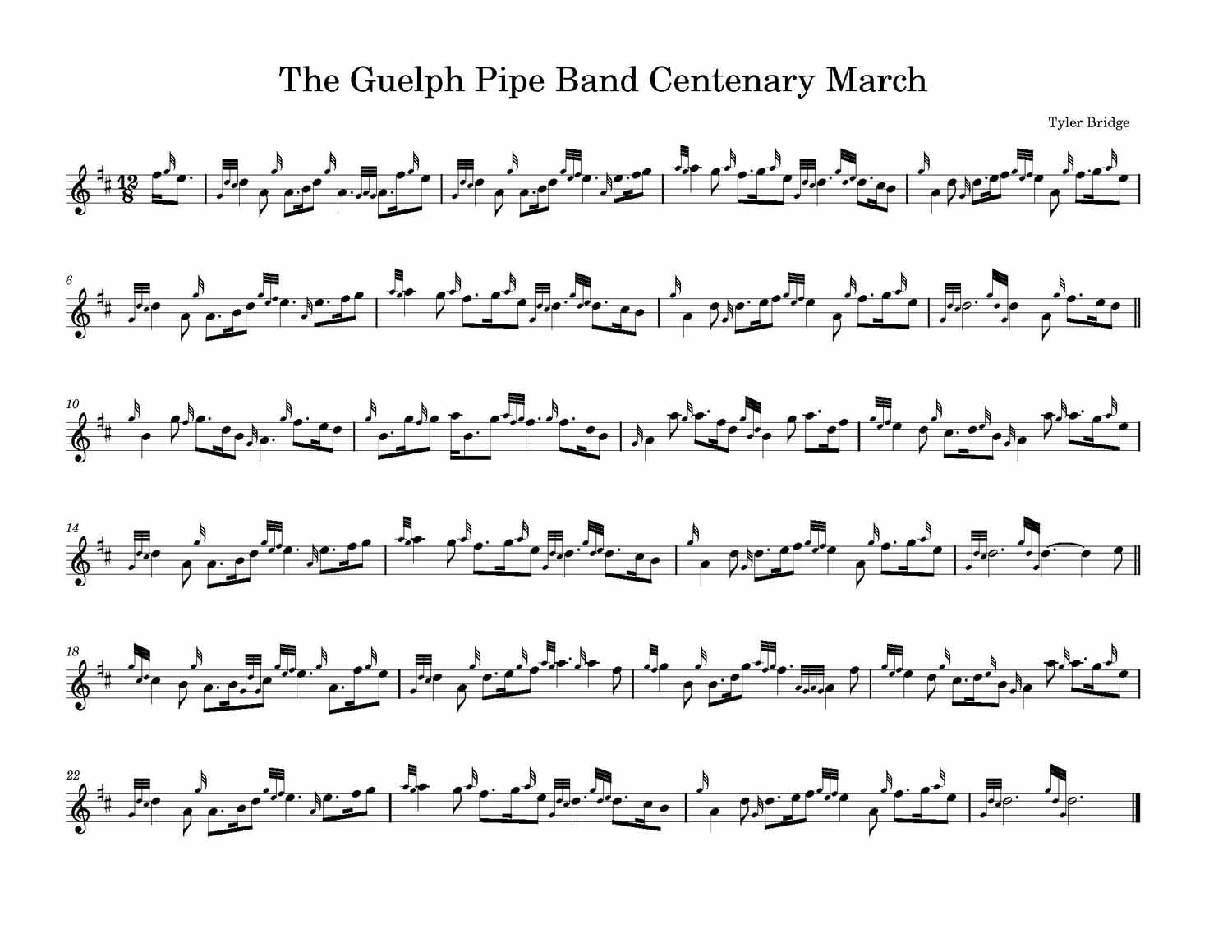
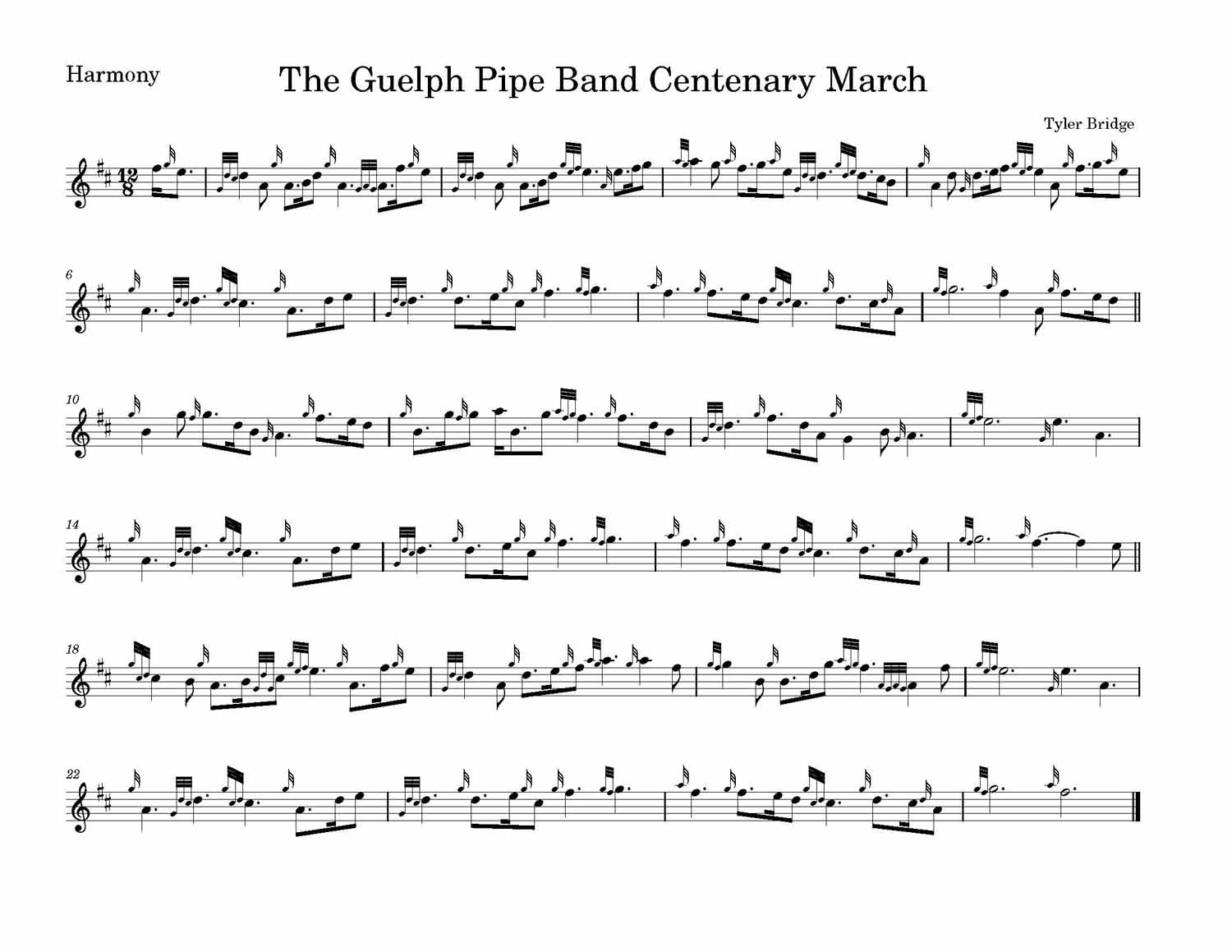
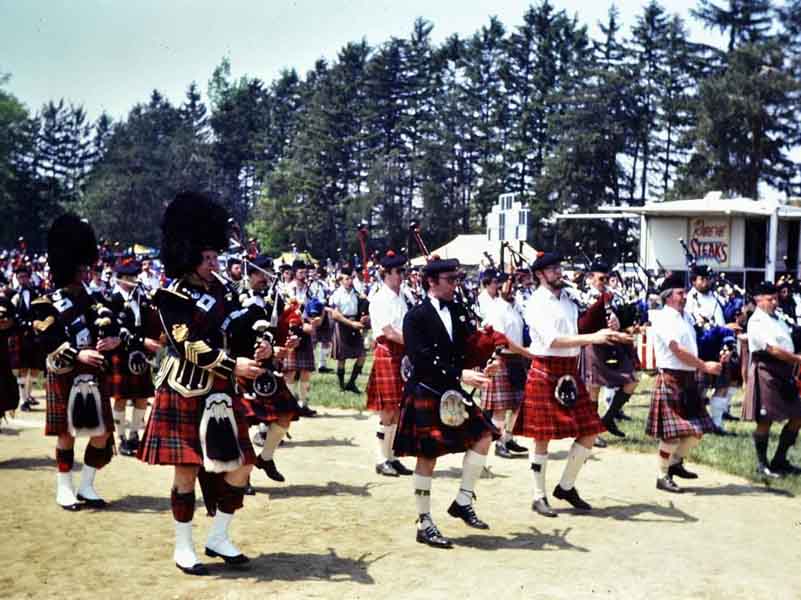
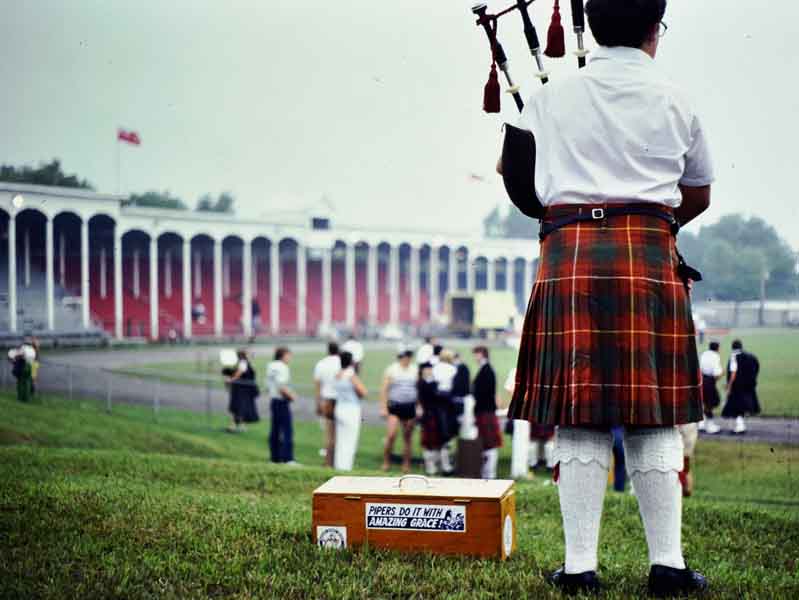
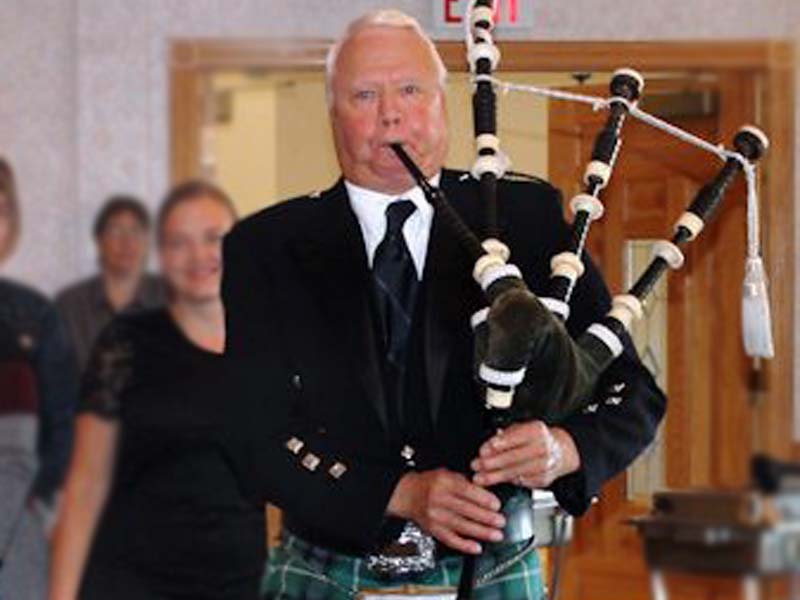
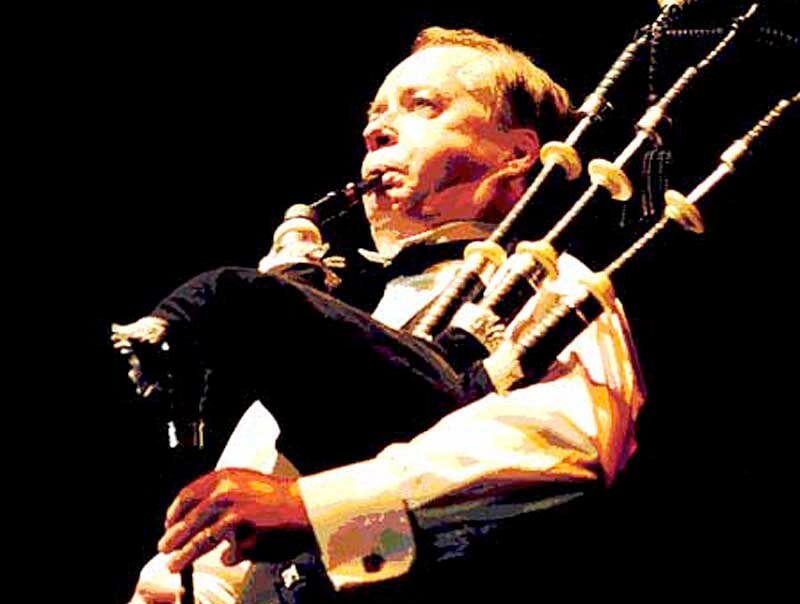


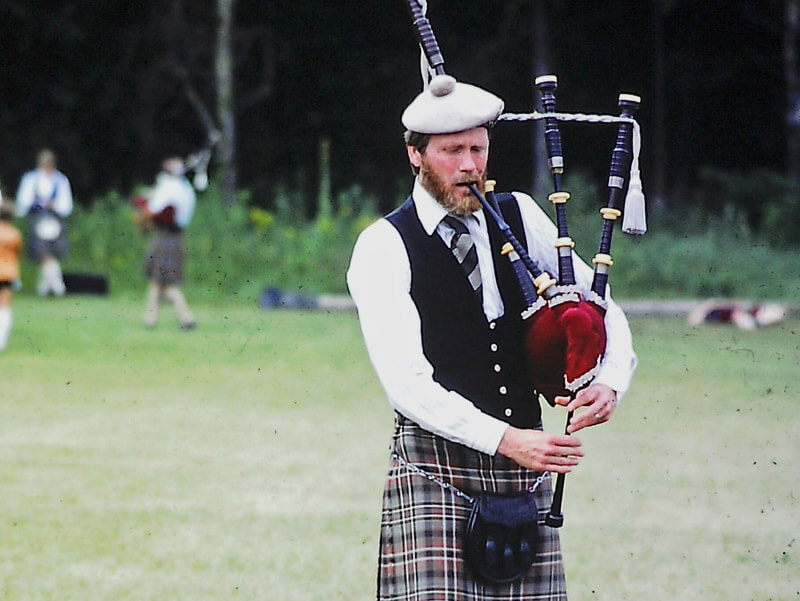
NO COMMENTS YET